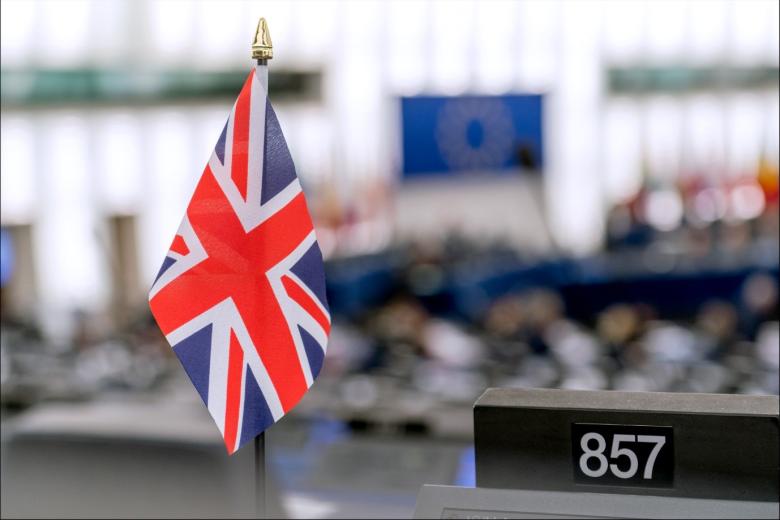Call the bluff, prime minister (part one)
With an Implosion of the Conservative Party becoming increasingly likely, Theresa May must stand up to extreme Brexit advocates before it’s too late.
These days, news from across the world can be overwhelming. Where in the past, most countries only featured two or three nationwide channels, we have now moved over towards a world of 24/7/365 news, complemented by cellphone notifications, blogs, online publications, social media and the like. Social media drives the news – a tweet by the current President of the United States can deliver an unsettling racist tirade Monday, a conspiracy theory on Tuesday and an acknowledgement of obstruction of justice on Wednesday. In a world like this, it is almost reassuring to see a resignation not being relayed on Twitter, but via a traditional letter on government stationery.

Such was the case when David Davis resigned his role as Brexit Secretary in Prime Minister Theresa May’s cabinet. His return to the backbenches in the House of Commons was motivated, according to Mr Davis, by a realization that Mrs May’s leadership essentially amounted to remaining in the Single Market and the Customs Union via the backdoor. Mrs May, in a letter responding to Mr Davis, disputed his claims and underlined her advocacy for her Chequers Plan – the supposed common negotiation strategy supported by the entire cabinet. However, the support was obtained with a substantive coercive element and with little reassurance that cabinet Brexiteers wouldn’t attempt to revolt once more. Chequers was a reason for the resignation of Foreign Secretary Boris Johnson as well. The prime minister’s leadership is now clearly in doubt.
Incompetence Run Amok
This state of affairs could be easily laughed off if this did not occur against the backdrop of a chaotic, dysfunctional and nigh incompetent handling of the Brexit negotiations with the European Union. From wishful thinking to unrealistic timelines to a complete inability to pierce the armour of EU27 unity, the results of Mr Davis’ efforts were, charitably speaking, somewhat economical. Meanwhile, the United Kingdom is fast approaching 30 March 2019 – the date when its withdrawal (according to the notification of said withdrawal on 29 March 2017) is supposed to come into effect. Little of substance has been negotiated and even the provisional withdrawal agreement is subject to an overall agreement in principle – especially on issues like the Irish border, which has proven intractable.
Indeed, there is no need to go into the ins and outs of why Messrs Johnson and Davis resigned and why Jeremy Hunt and Dominic Raab have now been appointed to fill said vacancies, respectively – for these are symptoms of a much larger problem. You see, whilst the EU27 – for all their inability to tackle the illegal immigration crisis, radically carry out much-needed institutional reforms, ending an anachronistic agricultural subsidies policy and enforce the rule of law everywhere in the Union – has presented a picture of unity, coherence and organizational superiority, the United Kingdom’s negotiation strategy has been non-existent. Since her ascent to power a few days after David Cameron’s resignation in the wake of the lost Brexit referendum, Theresa May has tried to do the impossible: reconcile the maximalist demands of pro-Brexit extremists (seeking to end any and all ties to the EU, come what may) and those Conservative MPs truly believing that some form of connection to the European Union needs to be maintained, in Britain’s economic, scientific, strategic and political interest.
Flawed from the Beginning
The many false starts in the Brexit negotiations, the myriad of policy papers and white papers published, the multiple keynote speeches given by the Prime Minister have only served to underline that this government does not know what it wants. This goes back to the original sin of the Brexit referendum. In every election campaign, political parties publish fully-costed, very detailed manifestoes concerning their plans and how they wish to implement their promises – especially what type of legislation they will enact once in government. The legal instrument used to organize the referendum, the European Union (Referendum) Act 2015 failed to do so. No safeguards (in the form of a supermajority and/or regional locks) were put in place to effect what amounted to a major constitutional upheaval in the United Kingdom – and no duty was imposed on the officially designated Leave campaign to present a clear, detailed, properly costed plan as to how they would wish to realize Brexit. The question the ballot was simple: “Should the United Kingdom remain a member of the European Union or leave the European Union?” – yet was not complemented by a companion question regarding the preferred options which could have read something like this:
“In the event of the United Kingdom leaving the European Union, should it
- Remain in/Leave the Single Market?
- Remain in/Leave the Customs Union?
- Remain in/Leave the European Atomic Energy Community?
- Submit the final withdrawal agreement between the United Kingdom and the European Union to a referendum within three months of the agreement being agreed in principle?”
Yes, it would have made for a longer ballot, but it would have provided a clearer, more legitimate instruction by the voters to their elected officials. But there was no mandate to execute a specific type of Brexit, just some kind of Brexit. That was the original sin of the Leave campaign – one it has failed to remedy to this day. Not just does this amount to professional negligence, but political arson through mendacity and incompetence.
Consequently, what we have now is a jumble of claims and counterclaims – with various shades of Brexiteers breathlessly exulting that “the people have spoken” and that it is now time to accept the verdict of 52% of the 72% of registered voters who participated in the referendum on a vague question that failed to spell out the legislative and legal consequences of a Leave vote. To add to these internal contradictions, Mrs May’s government lost its absolute majority in the 2017 general election, and now has to govern with the support of the extreme Democratic Unionist Party from Northern Ireland. The prime minister’s authority is damaged – she has been beleaguered by the likes of Jacob Rees-Mogg and Boris Johnson, who are attempting to undermine her every step of the way and who have been insisting on an unrealistic, highly damaging Brexit that would amount to cutting off any meaningful ties to the EU.
| Read part two of Call the Bluff More blogs on Law Blogs Maastricht image by Flickr - Tiocfaidh ár lá 1916 |
-
Faites vos jeux
Britain gets a hard-fought extension, with incalculable consequences.

-
Change of course?
With options running out before the United Kingdom faces yet another critical deadline, Prime Minister Theresa May tries one last (desperate) gamble to “save Brexit” – reaching out to the Labour Party. Will it be successful? Which are the options remaining on the table? What could happen next? Here...

-
The Ides of March: The United Kingdom gets one last chance. Will it use it?
Staying just a little bit longer? Or for good?
Summary: With the European Council throwing a lifeline to the United Kingdom, all options are back on the table. Rather than taking back control, the United Kingdom now finds itself dependent on the remainder of the European Union – with the absence of...